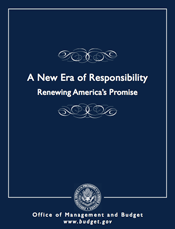 There's quite a spirited debate going on at WSJ's Environmental Capital about the proposed defunding of Yucca Mountain in President Obama's budget plan. NEI's Scott Peterson notes in the comments,
There's quite a spirited debate going on at WSJ's Environmental Capital about the proposed defunding of Yucca Mountain in President Obama's budget plan. NEI's Scott Peterson notes in the comments,This is an opportune time to re-evaluate America’s policy on managing commercial reactor fuel.
Given the clear need for expansion of nuclear energy (more than 70% of U.S. carbon-free electricity production comes from nuclear power) , the Obama administration and Congress should revisit the decision to use a once-through fuel cycle and instead pursue uranium recycling as part of an integrated approach includes at-reactor storage, private sector or government-owned centralized storage, and continued development and licensing of a federal repository.
Given the legal obligation that the government has to fulfill its responsibility under that law, the industry believes the NRC’s review of the Yucca Mountain license application should continue. In parallel, the administration should convene an independent panel of the best scientific, environmental, engineering and public policy leaders to fully investigate the critical issues and make a recommendation to President Obama and Congress on how best to proceed with managing used nuclear fuel.
Centralized storage is a strategic bridge in the uranium fuel management process that would also provide storage for reactor fuel from power plants that have been shut down. The federal government should collaborate with the private sector and other countries on a research and development and demonstration program to recycle reactor fuel in a way that is safe, environmentally acceptable, enhances the worldwide nonproliferation regime and makes sense economically. Other countries are looking at recycling as part of their used nuclear fuel management program and the United States should be constructively engaged in this technology development.
Through recycling, we can reclaim and reuse a significant amount of energy that remains in uranium fuel and reduce the heat, volume and toxicity of radioactive byproducts that ultimately will be placed in a repository.
Comments
This would not only dramatically reduce the volume of nuclear waste but would also produce clean energy and jobs within each state where such a facility was set up.
The Nuplex Solution
http://newpapyrusmagazine.blogspot.com/1999/02/nuplex-solution.html
Really? Having each state create their own repositories does not centralize anything. Yucca Mountain was proposed to take all wastes from all states to be the central repository. Either it happens or it doesn't. In my opinion, the Yucca Mountain Project should be localized (used as a repository for local states) and used as a way to research the (1) validity of having geological repositories and (2) success/risks of nuclear waste transport to a repository. Obama's budget to cut serious funding may be a viable solution to getting this done since it's already taken 3 decades to build not much of anything. Just my thought.
With your blog, I believe that you have very interesting goals. Either way, you will still have radioactive wastes as a byproduct or recycling, and will still need a way to dispose of that material. Without having any research on a geological repository, and having no other way to store the unusable wastes, you still have a problem of dealing with radioactive wastes. Your goals are also very theoretical, and obvious to do, but will take many more years to implement. With the amount of research already done with the Yucca Mountain Site, and with continued site specific research, having the possibility of the Yucca Mountain repository would serve as a secondary and currently approachable solution to the problem of radioactive nuclear wastes.